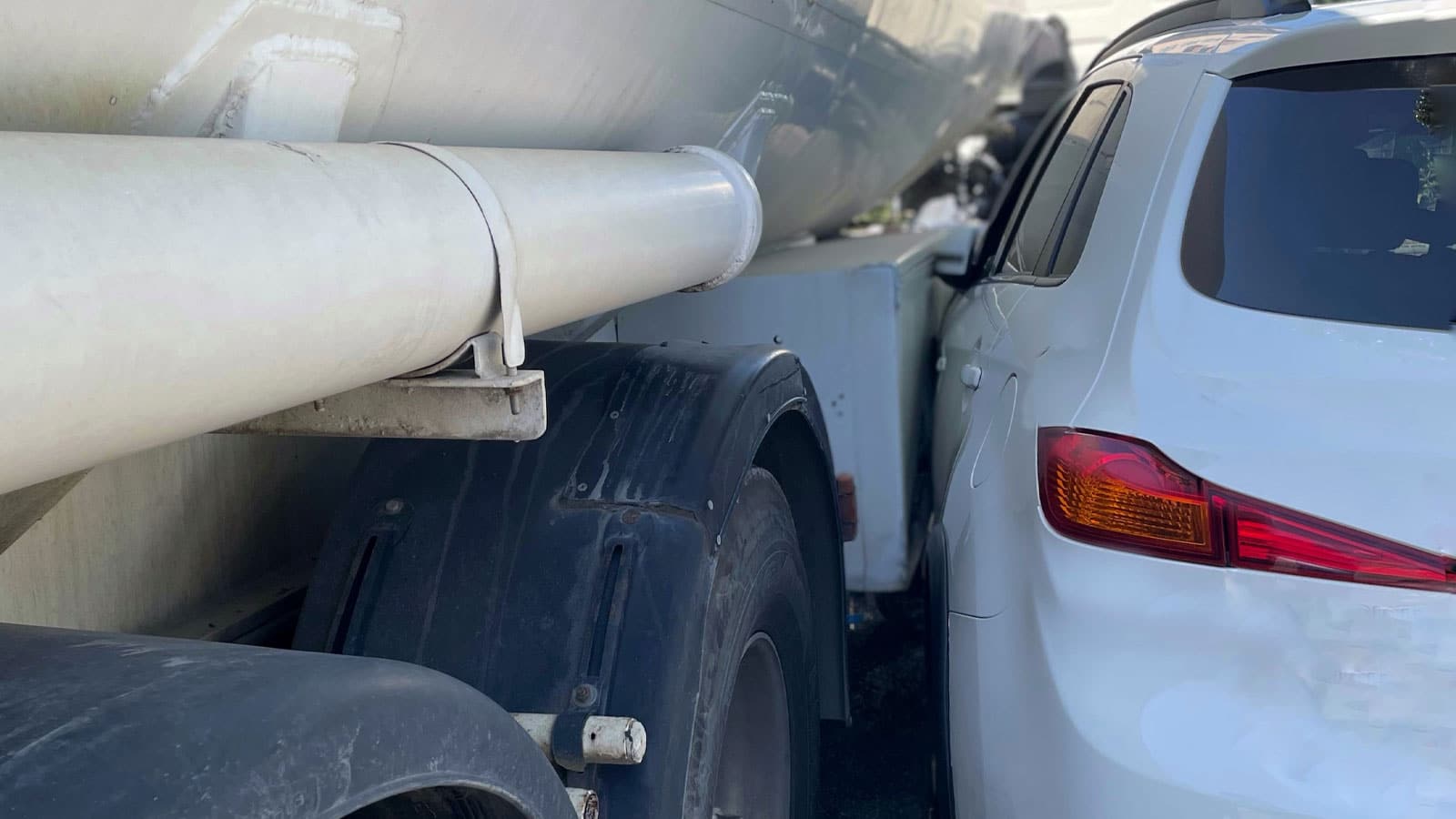
Why truck accidents are different from car accidents
-
Size and weight
Commercial trucks can weigh 20–30 times more than passenger vehicles, often leading to catastrophic injuries.
-
Strict regulations
The Federal Motor Carrier Safety Administration (FMCSA) enforces hours-of-service rules, maintenance requirements, and safety standards that impact liability.
-
Corporate involvement
Trucking companies, insurers, and even cargo loaders may share responsibility.
-
High insurance coverage
Commercial policies often provide millions in coverage, which makes insurers fight harder to avoid paying full value.
Common causes of truck accidents in Florida
-
Driver fatigue
Truck drivers often work long hours, sometimes violating federal limits.
-
Distracted driving
Cell phone use and other distractions play a role in serious accidents.
-
Impaired driving
Alcohol or drug use, including stimulants used to stay awake.
-
Poor maintenance
Worn brakes, tire blowouts, or mechanical failures can cause deadly wrecks.
-
Overloaded or unsecured cargo
Shifting cargo makes trucks unstable.
-
Hazardous road conditions
Heavy rain, fog, and debris increase accident risks.
Federal and Florida trucking laws that affect your case
-
FMCSA regulations
Cover driver hours, logbooks, inspection requirements, and electronic logging devices (ELDs).
-
Florida statutes on negligence
Establish fault and compensation rules.
-
Statute of limitations
Personal injury and wrongful death cases generally must be filed within two years under Florida Statute §95.11.
Determining liability in a truck accident case
-
The truck driver – for reckless driving, fatigue, or impairment.
-
The trucking company – for negligent hiring, training, or failing to maintain vehicles.
-
Cargo loaders – for improperly securing or overloading cargo.
-
Manufacturers – if defective truck parts contributed to the crash.
-
Third parties – such as contractors or maintenance providers.
What to do immediately after a truck accident
-
Call 911 and seek medical attention.
-
Gather evidence if possible (photos, witness contact information).
-
Avoid giving statements to the trucking company’s insurer.
-
Contact an attorney before negotiating with any insurance adjuster.
Evidence in a Florida truck accident claim
-
Police reports and accident reconstruction findings.
-
Electronic logging device (black box) data.
-
Driver logbooks and hours-of-service records.
-
Maintenance and inspection records.
-
Witness testimony and expert opinions.
Compensation available in truck accident cases
-
Economic damages – medical expenses, lost income, property damage, rehabilitation costs.
-
Non-economic damages – pain and suffering, emotional distress, loss of enjoyment of life.
-
Wrongful death damages – funeral expenses, loss of financial support, loss of companionship under Florida Statute §768.21.
-
Punitive damages – in cases of reckless or intentional misconduct.
Common insurance issues in truck accident claims
-
Lowball settlement offers.
-
Delays in processing claims.
-
Blame-shifting tactics to reduce liability.
-
Multiple insurers covering different aspects of the accident.
Deadlines to know in Florida truck accident claims
-
Statute of limitations (personal injury)
Two years from the date of the accident (Florida Statute §95.11).
-
Statute of limitations (wrongful death)
Two years from the date of death.
-
PIP 14-day rule
You must seek medical care within 14 days to qualify for no-fault benefits.
-
Claims against government entities
If a government vehicle is involved, notice must be filed within three years under Florida Statute §768.28.
-
Evidence preservation
Black box data and driver logs may be destroyed within months unless a spoliation letter is sent.
-
Insurance notification deadlines
Most policies require prompt reporting of an accident.
How long do you have to file a truck accident claim in Florida?
Why you need a Florida truck accident attorney
-
Level the playing field against corporate insurers.
-
Gain access to accident reconstruction experts.
-
Ensure evidence is preserved and subpoenas are issued promptly.
-
Increase your chances of securing full and fair compensation.